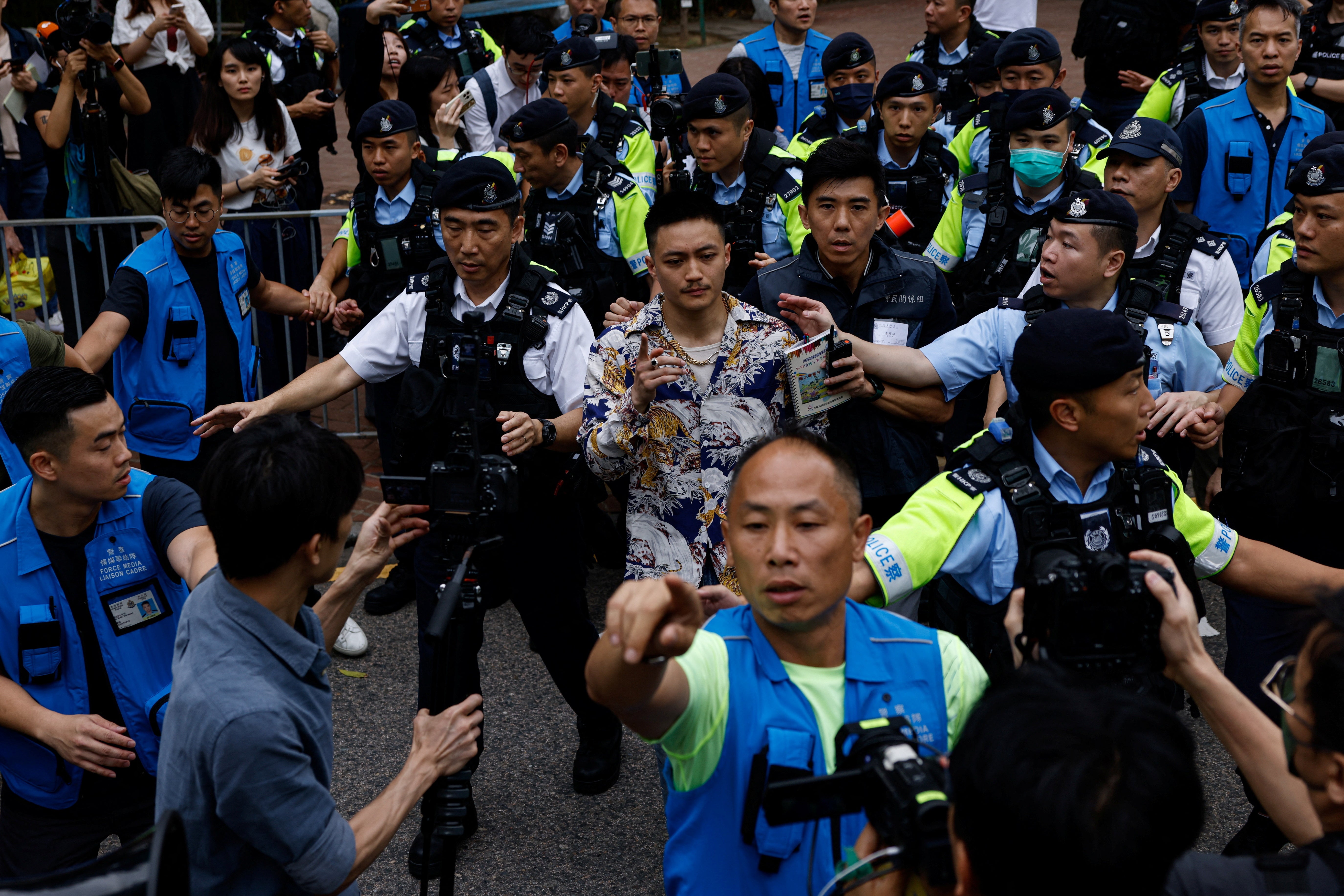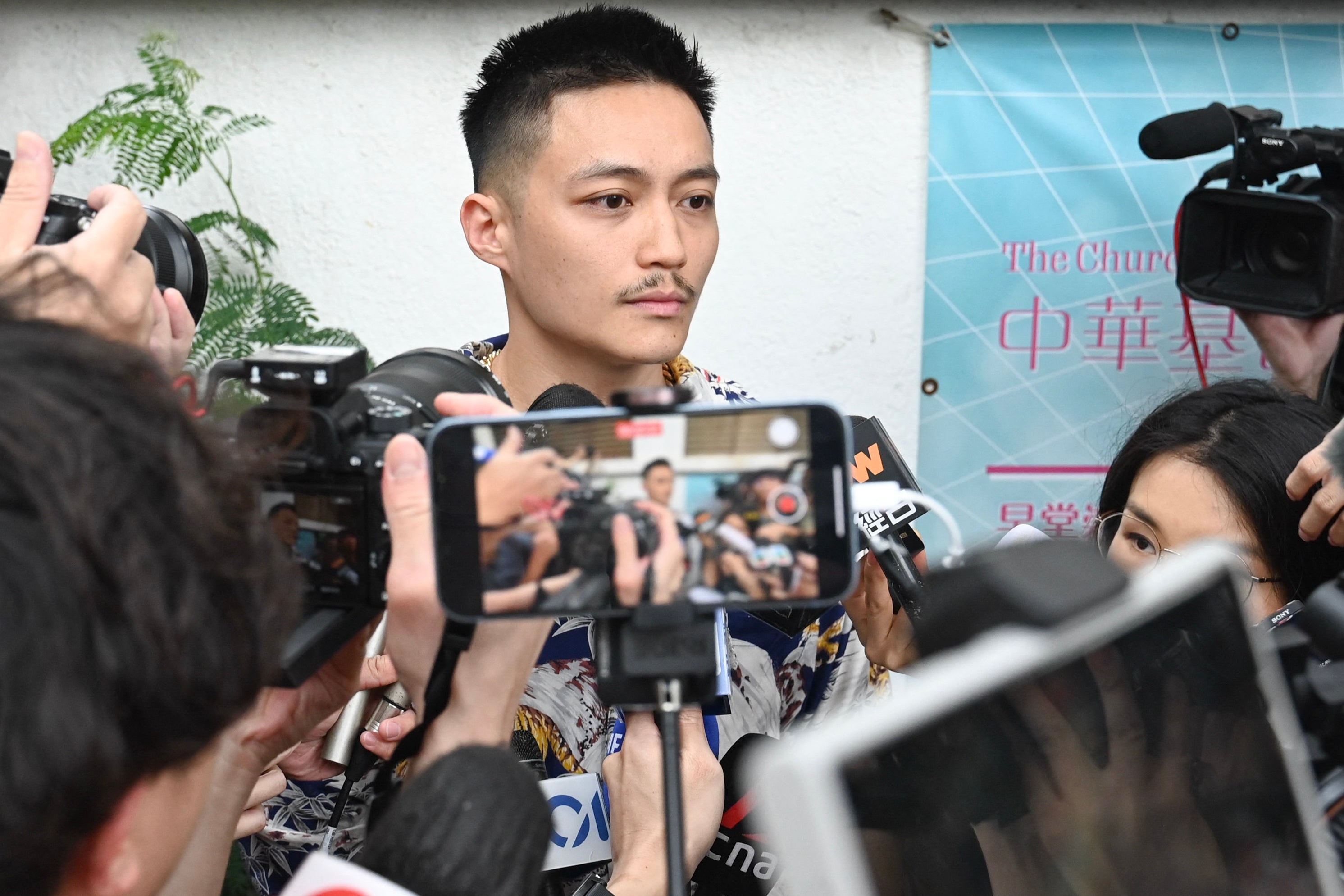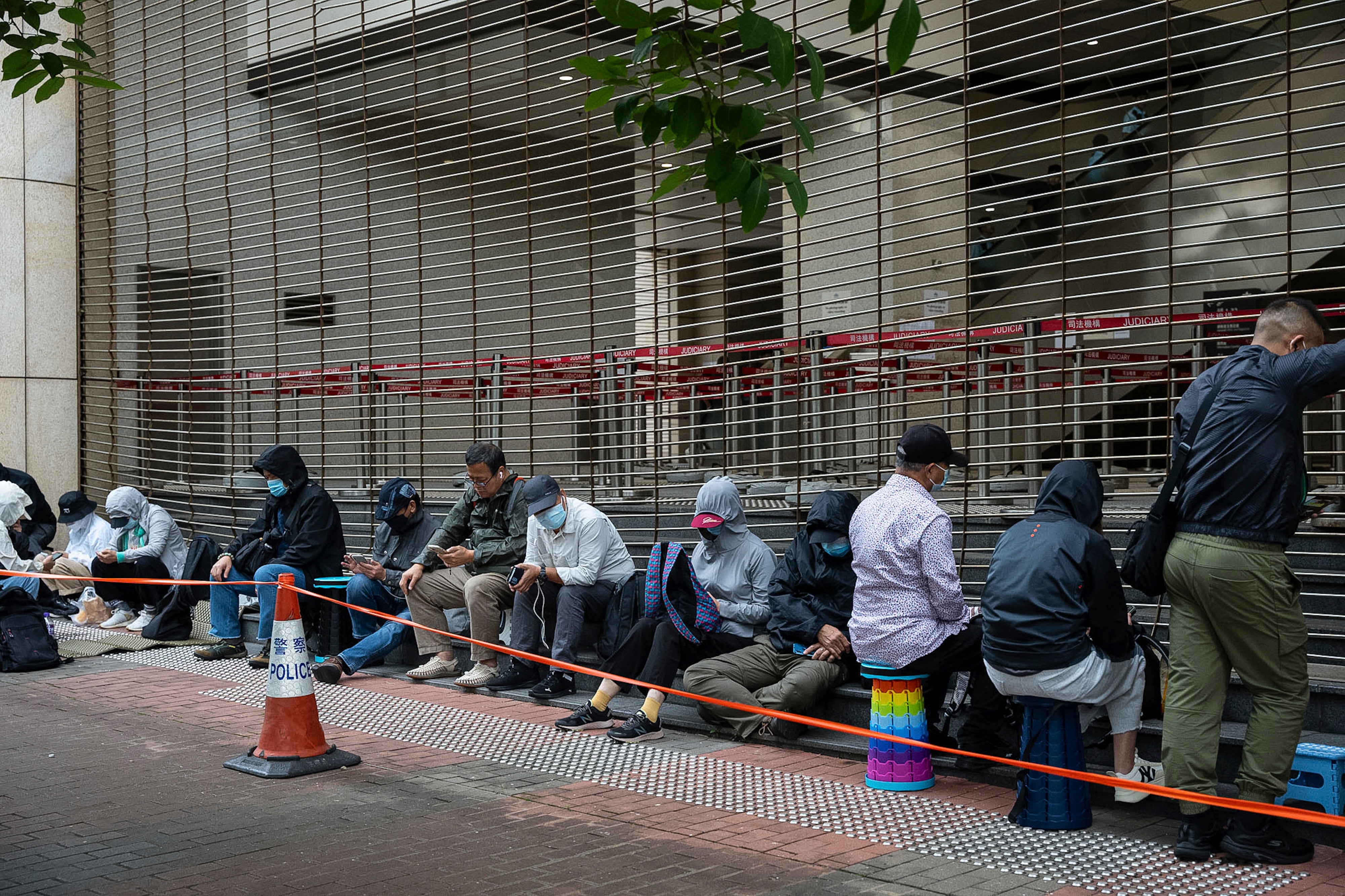Hong Kong convicts 14 pro-democracy activists in largest national security trial
Case involving 47 pro-democracy campaigners condemned internationally as politically motivated

A court has found 14 pro-democracy activists guilty on charges of subversion in Hong Kong’s largest use of a China-imposed national security law. The judgement was condemned by rights groups as “a near-total purge” of the political opposition in the city.
The 14 were among 47 pro-democracy campaigners who were detained and charged in 2021 for “conspiracy to subvert state power” by holding unofficial election primaries in 2020. The convicted included one organiser and 13 candidates, almost all of them former politicians. The trial finished in December, after 10 months. It was more than 1,000 days after the cohort had first been arrested.
Two defendents were found not guilty. But the prosecution said it intends to appeal against the acquittals. Sentencing will come at a later date for those found guilty, with prison terms ranging from three years to life. Thirty-one defendants pleaded guilty, and four of them have become prosecution witnesses.
"This unprecedented mass conviction is the most ruthless illustration yet of how Hong Kong's national security law is weaponised to silence dissent," Amnesty International's China director, Sarah Brooks, said in a statement. "It represents a near-total purge of the political opposition."
The US and some other countries have criticised the trial as politically motivated, calling for the accused to be immediately released. Diplomats from several countries including Britain and the European Union attended the hearing.
The UK minister for the Indo-Pacific, Anne Marie Trevelyan, said: “This case is a clear demonstration of the way that the Hong Kong authorities have used the Beijing-imposed national security law to stifle opposition.
“[This] verdict will only further tarnish Hong Kong’s international reputation. It sends a message that Hong Kongers can no longer safely and meaningfully participate in peaceful political debate. We call on the Hong Kong authorities to end [such] prosecutions and release all individuals charged.”
The court released a 319-page verdict that details the judges’ deliberations on the role of each defendant. The court said that the apparent “scheme” by Hong Kong campaigners for democracy would have “paralysed the operation of the government” and would “inevitably create political instability in Hong Kong leading to [a] constitutional crisis”.
It said that the 16 activists were in agreement with other persons to “participate in the scheme”, referring to the unofficial primaries, with the “view to subverting the state power”.
The court said that the scheme would have allowed them to “indiscriminately veto any budgets or refuse to pass any budgets or public expenditure to be introduced by the government regardless of the merits or the contents, in the event they were elected”.

The landmark case of the “Hong Kong 47” involved some of the cities best-known pro-democracy campaigners and former opposition politicians, such as Claudia Mo, Helena Wong and Kwok ka-ki. It also included two icons of pro-democracy protests in 2014: Joshua Wong and Benny Tai.
Those who were found guilty included former lawmakers Leung Kwok-hung, Lam Cheuk-ting, Helena Wong and Raymond Chan.
The two acquitted were a former district councillor, Lee Yue-shun, and barrister Lawrence Lau.
Mass pro-democracy protests erupted in Hong Kong in 2019 against Beijing's plans for legislation that democrats argued infringed on freedoms guaranteed when Hong Kong returned to China's control in 1997.
Beijing imposed the sweeping national security law in 2020, which has led to a spate of arrests of democratic campaigners as well as the closures of liberal media outlets and NGOs. Hong Kong's democratic opposition had sought for decades to pressure Beijing to allow full democracy in the city. Once-lively street marches, demonstrations and vigils have essentially ceased amid intense policing.
Before Thursday’s court session began at 6am local time, dozens of residents had queued up outside the court, where there was a heavy police presence. Some arrived as early as Wednesday evening and stood all night to secure a seat in the public gallery for the verdicts.

Staging a rare and solo protest, Alexandra Wong, a well-known protester dubbed “Grandma Wong”, chanted support for the activists and waved a Union Jack at a designated protest area, some 50m away from the courtroom.
“Hong Kongers are still here. We haven’t given up. We are still with you all,” said SL Chiu, who only gave his initials due to fear of government retribution, adding that the hearing marked a historic moment.
The July 2020 primary was being carried out to shortlist pro-democracy candidates who would then run in the official election. It drew an unexpectedly high turnout of 610,000 voters, representing over 13 per cent of the city’s registered electorate. The pro-democracy camp had hoped they could secure a legislative majority, which would allow them to press for the 2019 protest demands, including greater police accountability and democratic elections for the city leader.
But the government postponed the legislative election that would have followed the primary, citing public health risks during the coronavirus pandemic. The electoral laws were later overhauled, drastically reducing the public’s ability to vote and increasing the number of pro-Beijing lawmakers making decisions for the city in the legislature.
Analysts have said their subversion case illustrates how the security law is being used to crush the political opposition in Hong Kong in the aftermath of the huge anti-government protests in 2019.
Additional reporting by agencies
Join our commenting forum
Join thought-provoking conversations, follow other Independent readers and see their replies
Comments